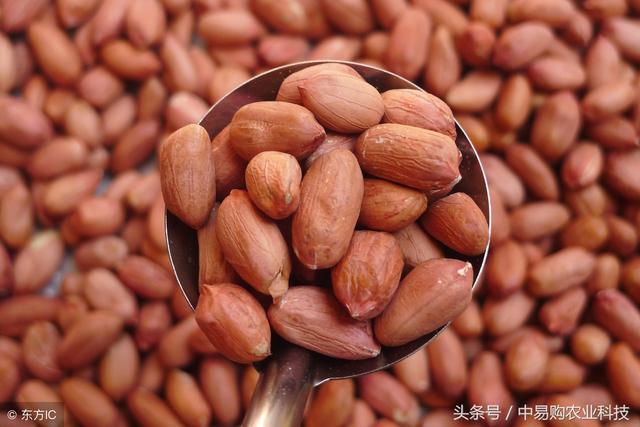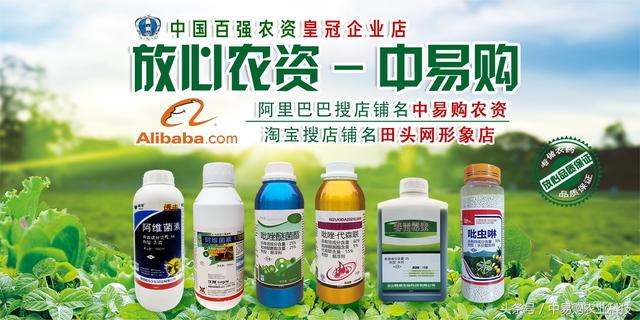High-yield scientific planting of peanuts in spring!
Peanuts must be the most familiar side dish on the table. As one of the crops loved by agricultural friends, in the process of planting, we must plant scientifically and cultivate correctly, so as to achieve high yield harvest.

Preparations for planting spring peanuts
① Soil preparation: peanut planting, moderately acidic soil is the most suitable. Choose a loam or light sandy loam with deep soil layers. Before planting, plow deeply and rake carefully. Finely divide the soil to make the soil level. Remove residual stubble, stones.
(2) Preparation of seed selection: double kernel fruit with full particles is the most suitable. To choose seeds with high germination rate, avoid disease insect species. Before sowing, carbendazim can be used to dress seeds to enhance pest resistance.
Scientific planting steps for planting spring peanuts
① Timely sowing: When sowing, there are requirements for temperature. The suggested suitable period is between grain rain and summer, or from late February to early March, depending on the regional temperature. Only when the soil temperature in the seeding layer 5 cm is stable at more than 15 ℃ can it become the suitable sowing time for high yield. The weather turns from cold to warm, and when it clears up, you can start sowing.
Reasonable fertilization: fertilization lies in the reasonable combination of organic fertilizer and inorganic fertilizer to improve soil quality and ensure sufficient soil fertility. Remember three points: base fertilizer should be sufficient, the proportion of nitrogen and potassium fertilizer should be guaranteed, and the topdressing should be reasonable.
③ Sowing method: Sowing should be reasonably dense, with two seeds in each pit. The hole depth is about 3-5cm, and the specific planting depth is determined according to the humidity conditions. If it is too dry, the planting depth will be shortened appropriately; otherwise, it will be deepened appropriately. The distance between acupoints should be kept 12-15cm.
④ Correct management: in the process of planting, timely early seedling replanting, timely soil pressure grass, timely prevention and control of pests and diseases; timely attention to irrigation, timely removal of weeds and so on. In the process of planting, there are many situations. Our agricultural friends still need to take them seriously, observe them carefully and improve the problems in order to obtain a bumper harvest.
I am Kobayashi. Every day, I will bring the most professional and cutting-edge agricultural materials information and knowledge to farmers and farmers. Readers are welcome to leave messages in the comment area. For more wonderful articles, please pay attention to Zhongyi Agricultural Science and Technology. See our next article.

Carbendazim ¥ 15 Taobao purchase ! function(){if(! window.__ TEMAI_PARSED){if(window.__ TEMAI_PARSED=! 0,window.responsive&&1!= window.responsive.dpr&&window.responsive.changeScale(1,! 0),window.isPGC=! 0,window.__ requestType="app","app"===window.__ requestType&&! window.ToutiaoJSBridge){var e="%3Cscript%20src=%22https://s3.pstatp.com/inapp/toutiao.js%22%3E%3C/script%3E";document.write(decodeURI(e))}var t=document.createElement("script");t.src="https://s2.pstatp.com/pgc/v2/pgc_tpl/pagelet/card/click_ccce36d.js",document.body.appendChild(t)}}();
- Prev

Why do missing teeth choose to implant teeth?
Dental implants are considered to be the first choice for the repair of missing teeth, and it is an ideal choice for patients with missing teeth. If you lose your teeth due to illness or accident,.
- Next

The origin of saffron is not Xizang? But now it's been planted successfully.
Xizang, China. Many people think that the origin of saffron is Xizang, but the true identity of saffron is actually originated in the mountains of Asia.
Related
- Fuxing push coffee new agricultural production and marketing class: lack of small-scale processing plants
- Jujube rice field leisure farm deep ploughing Yilan for five years to create a space for organic food and play
- Nongyu Farm-A trial of organic papaya for brave women with advanced technology
- Four points for attention in the prevention and control of diseases and insect pests of edible fungi
- How to add nutrient solution to Edible Fungi
- Is there any good way to control edible fungus mites?
- Open Inoculation Technology of Edible Fungi
- Is there any clever way to use fertilizer for edible fungus in winter?
- What agents are used to kill the pathogens of edible fungi in the mushroom shed?
- Rapid drying of Edible Fungi

